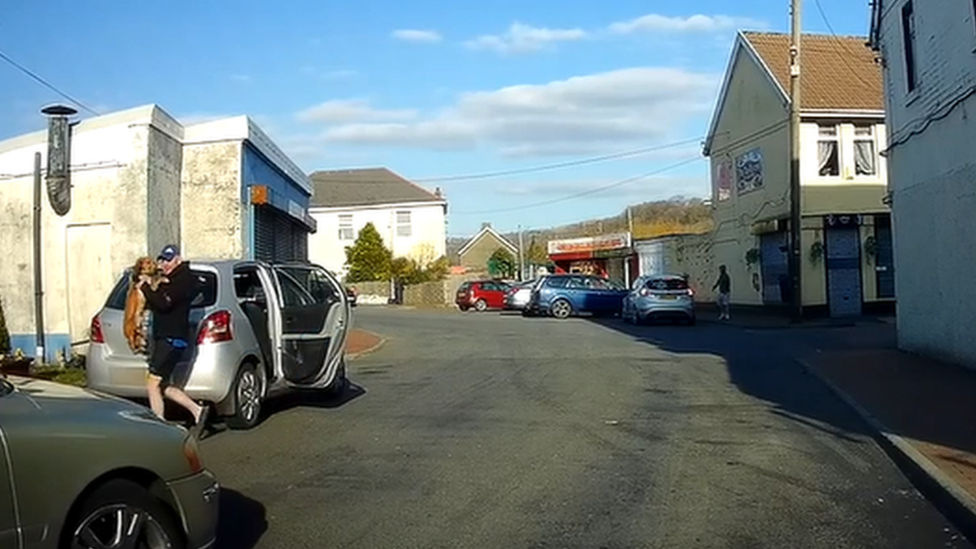Covid: Concerns over 'dogfishing' and abandoned pets
- Published
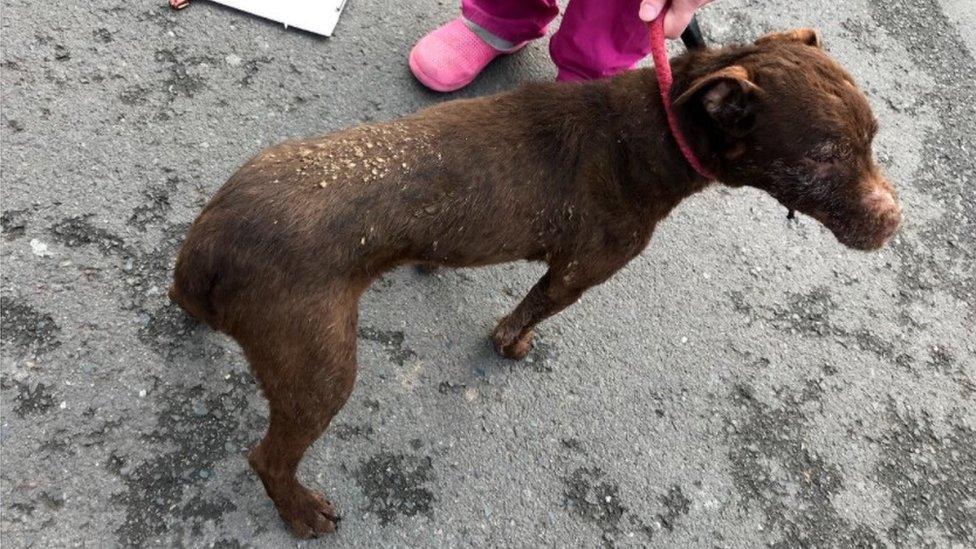
Fig is now recovering but dog welfare charities are braced to take in more dogs over the coming months
Dog welfare charities in Wales say they are braced for a range of problems as people continue to battle with the coronavirus pandemic.
At the start of the year, five times as many people as usual searched for puppies online - raising concerns they could be "dogfished".
"Dogfishing" is described as misleading someone into buying a dog which may not be what it seems.
Pets could also be abandoned as people struggle financially, charities say.
Patterdale terrier Fig was taken to a Hay-on-Wye vet on 14 October after wandering into someone's yard.
The dog, a suspected victim of badger baiting, had been left with "horrendous injuries".
"When he was found he was covered in mud and was extremely thirsty," said RSPCA inspector Keith Hogben.
"This poor dog is one of the worst I have seen in my 20-plus years with the RSPCA."
Describing him as "the friendliest dog", Mr Hogben said Fig may have to lose some teeth after suffering bad jaw and nasal injuries but should recover.
In all, RSPCA Cymru has been called to 453 cases of dog abandonment this year - there has so far been no noticeable change since the pandemic started, with 67 rescued in January, 56 in March, 55 in August, 37 in September and so far 21 in October.
However, the charity is worried further financial pressures caused by the Covid-19 pandemic will impact on dog welfare and lead to increasing cases in the coming months.
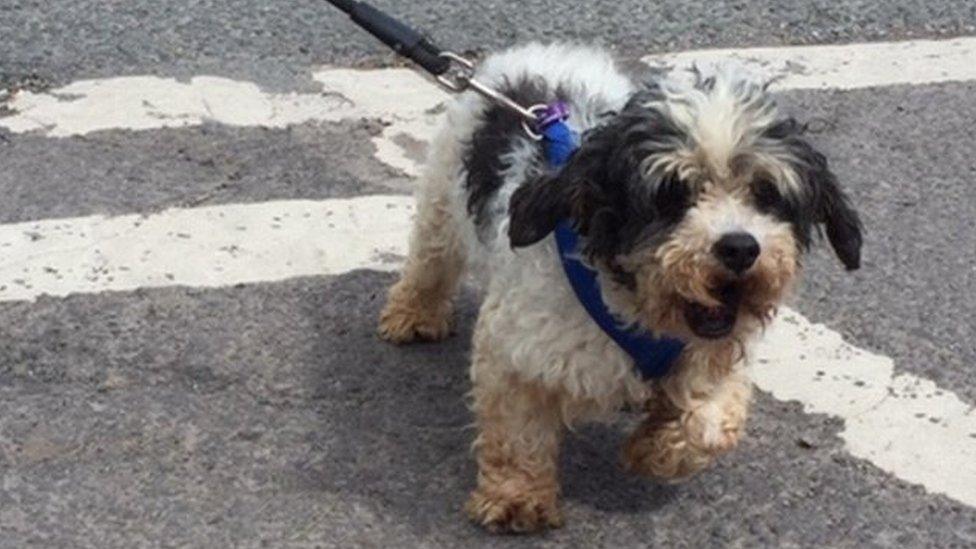
RSPCA Cymru is bracing itself to take more dogs into care over the coming months
The charity believes the situation could be exacerbated by an increase in people buying pets during lockdown - it reached its height in July when 15,000 people in the UK conducted Google searches for "puppies near me". This was five times the number for the same month in 2019.
"We're worried that as a recession hits we could see more dogs coming into our care or being abandoned," said dog welfare expert Dr Samantha Gaines.
"The message here is simple - do lots of research to help find the right pet for your family and don't impulse buy."
In total, 40,000 dogs could be abandoned UK-wide as the country deals with an economic crash similar to 2008 when there was a 25% rise, according to the Dogs Trust.
The charity also believes the high demand for new pets over recent months meant more people had been "dogfished" by smugglers, potentially making the situation worse.
Between the start of lockdown in March and the end of September, the charity rescued 140 puppies illegally imported from central and eastern European countries.
These were set to be sold for "extortionate" prices, advertised online as UK-bred dogs, fetching about £266,000 in total.
In a UK-wide survey of 3,000 people, the charity found that of those who bought a pet in Wales in the past seven years, 38% did no research and 34% saw them for the first time on the day they bought them.
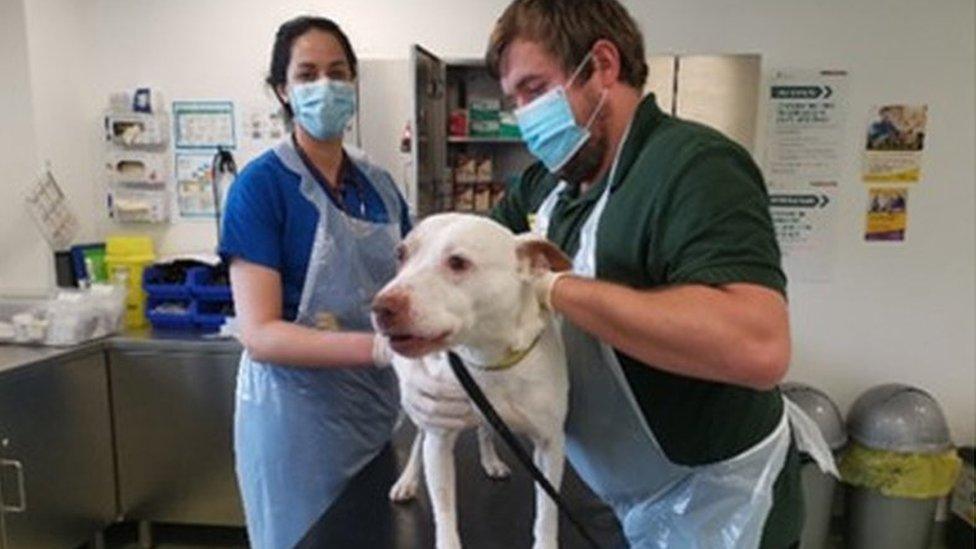
The Dogs Trust has already taken in pets from people who have died or been in hospital after contracting Covid-19
There is also concern more families will hand dogs into rescue centres due to behavioural problems that have emerged as a result of changes in routines and set-ups caused by different lockdown changes.
Over the past few months, visits to the RSPCA's dog behaviour page have doubled and Dr Gaines said: "Dogs can be sensitive to changes to their routine."
The charity rehomes dogs but said local lockdown restrictions have had an impact on work to do this at centres in Newport, and Bryn-y-Maen in Upper Colwyn Bay, Conwy.
Meanwhile, Dogs Trust Bridgend rehoming centre manager Angela Wetherall said the charity had already taken in dogs from owners who have died or been taken into hospital with Covid-19.
She said it was doing all it could to minimise the impact, but the charity was being "hit hard by this crisis".
She added: "We know the worst is yet to come."
- Published15 July 2020
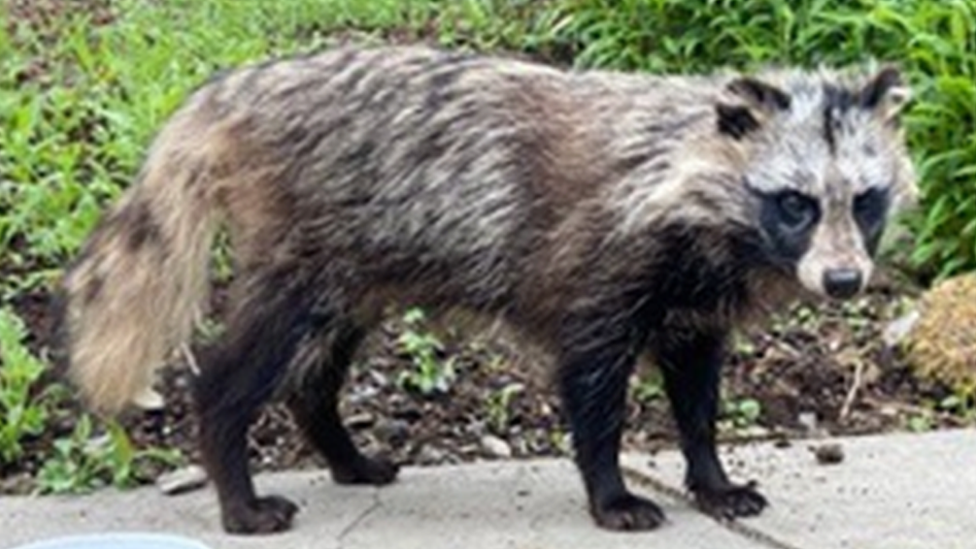
- Published2 September 2020
